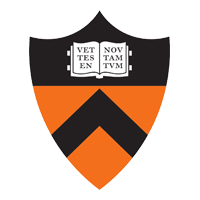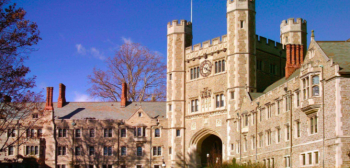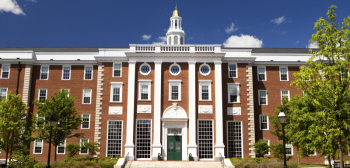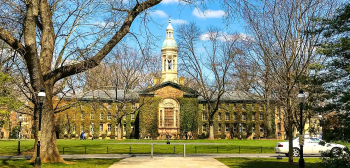普林斯顿大学
About
Princeton University offers advanced degrees spanning the humanities, social sciences, natural sciences, and engineering. The focus is undeniably on doctoral education across these disciplines with an emphasis on original and independent scholarship.
There are, however, a limited number of master's degree programs in the fields of architecture, engineering, finance, public affairs, and public policy, which aim to prepare students for careers in public life and the professions. Princeton’s Graduate School has roughly 2,600 students enrolled across 42 academic departments and programs. In a typical year it may receive more than 11,000 applications for admission, and award 319 PhD degrees and 170 terminal master's degrees.
Princeton Graduate School’s admission rate is roughly in line with other Ivy League schools at 12 percent. Applicants must hold a bachelor’s degree and can apply from September until December for admission in the fall of the following academic year.
The process of application is similar to other institutions, requiring the submission of a statement of academic purpose, a resume, recommendation letters, university transcripts, a $90 application fee, GRE test scores, and a statement of financial resources. Some programs also require a writing sample. There are additional standard requirements for international students whose first language is not English, as they must submit TOEFL or IELTS scores.
Tuition for an academic year is the same for all regularly enrolled graduate students and is subject to annual increases. For 2017-2018, tuition and the cost of Princeton’s health plan totaled $48,940 a year. Living costs, including housing, food, and personal expenses, are an extra cost, estimated at US30,300 per year.
For all PhD candidates, tuition and fees are provided in full by the college for the regular period of enrollment in the form of fellowships, assistantships, or funding from external sources. Furthermore, there is an annual stipend for PhD candidates based on the college’s estimated living costs.
For master’s students, however, there is no such inter-college assistance, so you may need to apply for loans or external financial support. International students may find themselves in a similar situation and may have to resort to borrowing from private sources or applying for private student loans through banks, credit unions, or other lending institutions.
About
Princeton University offers advanced degrees spanning the humanities, social sciences, natural sciences, and engineering. The focus is undeniably on doctoral education across these disciplines with an emphasis on original and independent scholarship.
There are, however, a limited number of master's degree programs in the fields of architecture, engineering, finance, public affairs, and public policy, which aim to prepare students for careers in public life and the professions. Princeton’s Graduate School has roughly 2,600 students enrolled across 42 academic departments and programs. In a typical year it may receive more than 11,000 applications for admission, and award 319 PhD degrees and 170 terminal master's degrees.
Princeton Graduate School’s admission rate is roughly in line with other Ivy League schools at 12 percent. Applicants must hold a bachelor’s degree and can apply from September until December for admission in the fall of the following academic year.
The process of application is similar to other institutions, requiring the submission of a statement of academic purpose, a resume, recommendation letters, university transcripts, a $90 application fee, GRE test scores, and a statement of financial resources. Some programs also require a writing sample. There are additional standard requirements for international students whose first language is not English, as they must submit TOEFL or IELTS scores.
Tuition for an academic year is the same for all regularly enrolled graduate students and is subject to annual increases. For 2017-2018, tuition and the cost of Princeton’s health plan totaled $48,940 a year. Living costs, including housing, food, and personal expenses, are an extra cost, estimated at US30,300 per year.
For all PhD candidates, tuition and fees are provided in full by the college for the regular period of enrollment in the form of fellowships, assistantships, or funding from external sources. Furthermore, there is an annual stipend for PhD candidates based on the college’s estimated living costs.
For master’s students, however, there is no such inter-college assistance, so you may need to apply for loans or external financial support. International students may find themselves in a similar situation and may have to resort to borrowing from private sources or applying for private student loans through banks, credit unions, or other lending institutions.
University highlights
- 2012#9
- 2014#=10
- 2015#9
- 2016#11
- 2017#11
- 2018#13
- 2019#13
- 2020#13
- 2021#12
- 2022#20
- 2023#=16
- 2024#=17
- 2025#22
- 2026#=25
Campus locations
Princeton University,
Princeton University , Princeton , New Jersey , United States , 08544
359 East Pyne,
359 East Pyne , Princeton , New Jersey , United States , 8544
Similar Universities
萨凡纳艺术与设计学院
516 Drayton St, Savannah
Seton Hall University
400 S Orange Ave, South Orange, South Orange
乔治华盛顿大学商学院
George Washington University, Washington D.C.
罗彻斯特理工大学 (RIT)
Lomb Memorial Drive, Rochester
雷鸟全球管理学院
400 E Van Buren, Phoenix
Related content
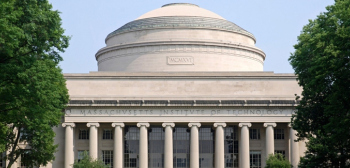
2020年的美国顶尖大学

关于QSCrimson

美国大学的无需求录取指南

纽约市的顶尖大学:哥伦比亚大学还是纽约大学?


